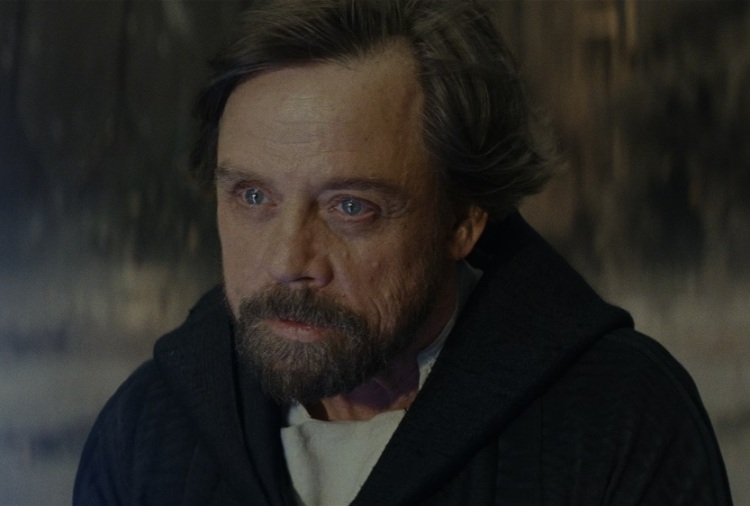Quite possibly my biggest pet peeve when reading or listening to reviews and critical opinion is when a critic asserts that a film, video game, or television series that they personally dislike is “objectively bad”. This is something I’ve seen both amateurs and professionals do, and it absolutely needs to stop. It’s the single fastest way a commentator can invalidate their own argument and credentials, and it’s got to a point where it’s been proclaimed so often that any time I see or hear the phrase “objectively bad”, I stop reading or listening. Any critic making such a statement has lost my respect and lost the argument.
To briefly define the terms, “objective” refers to something definite and factual, whereas “subjective” refers to an opinion or personal taste. Specifically, the word “objective” – and its adverb “objectively” – should be used to describe only those things which are not influenced by one’s own opinion or personal taste.
The creative arts – including cinema, television, and gaming – are by their very nature subjective. Storytelling and narrative decision-making in particular are incredibly subjective, perhaps being second only to individual musical taste. Every single aspect of a film, television series, or game – from its narrative to its aesthetic to its editing – is 100% subjective, and anyone who tries to claim otherwise doesn’t understand the meaning of these terms. There are certainly established ways of doing things, but refusing to follow these routes is not only not “objectively bad”, it’s the only way there can ever be innovation. Even in a title which is universally panned, there is still a huge amount of subjectivity – this is why some poorly-received films go on to be cult classics, and why there’s a market for re-releases of B-movies like Return of the Killer Tomatoes.

Even on the more technical side of filmmaking, an aspect one person may find annoying – like incredibly fast-paced editing – is someone else’s idea of a stroke of brilliance. Setting aside those few video games that are released with so many glitches that they’re unplayable, the same is true there too. I remember reading a novel a few years ago called Cold Mountain – since made into a film – which had a really annoying writing style. There were no speech marks used to indicate dialogue, and the author appeared to be aware of precisely zero synonyms for the word “said”, using it over and over again for almost every line where a character spoke. I found these things to be incredibly dumb and gimmicky, yet when I spoke to a friend who’d recommended me the book, she thought it was masterful; a postmodern way to write.
While I’m sure people have been misusing “objectively” for years, where it came to prominence for me was in the discourse surrounding the 2017 film Star Wars Episode VIII: The Last Jedi. Many Star Wars fans disliked the film for a number of reasons, and while I personally enjoyed it, by and large I can understand the criticisms many folks had. Some decisions taken by Rian Johnson and others at Lucasfilm seem to have been almost designed to be controversial – and anything like that will always result in split opinions. But nothing in The Last Jedi was “objectively bad”, as many critics claimed. Whether someone liked or hated things like Luke Skywalker’s characterisation, the Admiral Holdo and Poe confrontation, the side-mission to Canto Bight, Snoke’s fate, or the hyperspace ramming manoeuvre, none of them can be said to be “objectively bad” storytelling decisions. Even if a significant part of the film’s audience felt some or all of those points failed, that’s still a subjective opinion on the part of those individuals. Picking on a single narrative element in a story – such as the way Luke’s character was handled – and deeming it “objectively bad” not only is incorrect, but it undermines one’s own argument and makes having a rational conversation on the topic impossible.

I don’t want to turn this essay into a critique or defence of The Last Jedi, because it’s hardly the only title in recent years that has seen “objective” bandied about and used incorrectly by critics. While I liked The Last Jedi overall, that isn’t the reason for my saying it can’t be called “objectively bad”. There are titles I personally didn’t like, even projects I felt completely failed, that I would make the same case for. Game of Thrones’ eighth season was not “objectively bad”. Nor was The Last of Us Part II, despite my saying recently that 3/10 seemed like a fair score for that game. Not even The Rise of Skywalker, which had myriad problems with its story as well as its pacing, could be described as being “objectively bad”. I greatly dislike or had serious issue with all three of these titles, but I could never say that about them because there simply is no such thing as an “objectively bad” narrative. They all have major issues and failings in my opinion – an opinion shared by many other people in some cases, but a subjective opinion nevertheless.
What a critic is trying to do by clumsily using the word “objective” is to shut down dissenting opinions. By asserting that their belief is “objective” and thus purely factual, they’re saying that no other opinions on the topic can exist, and that anyone who tries to make a counter-argument is automatically wrong with any points they make being invalid. This isn’t how criticism and discourse are meant to work. Setting aside the fact that the word is being used incorrectly, the implication is that the person making such an assertion is closed-minded. It’s a consequence in part of social media bubbles and YouTube channels feeding the same opinions to people repeatedly.

In the aftermath of The Last Jedi, this was taken to extremes by some of the film’s detractors. While some of these people would begin a discussion by saying something generic like “I respect your opinion”, often what would come next is plenty of evidence to the contrary. It wasn’t good enough for them that most folks they spoke to didn’t like the film, they wanted everyone to hate it just as passionately as they did, and any contrary opinion was taken as a personal attack. The reality is that there will always be a range of opinions on practically any film, game, or television series, and trying to convince oneself that everyone needs to share the same opinion will not lead anywhere positive.
The conversation around The Last Jedi became so aggressive, unpleasant, and toxic that I stopped engaging with the film’s critics. It was clear to me that most of them weren’t interested in a conversation nor in hearing any other opinion besides a differently-worded version of their own. Some of these folks seemed to be tying their whole identity to being anti-Disney or anti-Star Wars, and any difference of opinion was perceived as a challenge to their newfound sense of self. That appears to be at least part of the reason why we started to see the phrase “objectively bad” crop up more and more often in relation to that film.

Calling something “objectively bad” – or indeed “objectively” anything else – has a finality to it. It seeks to shut down the debate and block off any chance of someone offering a different opinion. But it simply isn’t correct, and by taking even small steps to broaden one’s understanding of a work of fiction, it’s easily possible to see that there are a range of opinions. Some critical works may even cause a rethink, reframing the discussion or bringing up a point others have failed to mention. Even if these don’t cause anyone to change their mind, they are at the very least evidence that a title is not “objectively bad”.
In most of the titles mentioned above, there were choices made by the creators and storytellers that I wouldn’t have made. These choices made the stories less enjoyable – or completely unenjoyable – for many people. Whether we’re talking about cinema, television, or video games, stories can be poorly-written, and indeed the whole point of media criticism is to point that out. But even the most well-read academic or the most prolific storyteller is simply expressing their own opinion when they make such a point. If you’ve ever taken a creative writing class or subjected your fan-fiction to internet critique, you’ll know that. Criticism is an expression of one’s own thoughts and opinions on a subject. By the very nature of the medium, criticism is subjective, not objective.

Some people may be misusing a term that they don’t understand, in which case further education is needed. But unfortunately, many critics who are fully aware of the difference between subjective and objective use the wrong word on purpose. Occasionally it may be little more than hyperbole, but even then this kind of exaggeration does nothing to elevate the discussion around entertainment and media. Often it’s a cynical attempt to shut down debate; to attempt to discredit dissenting opinions by stating one’s own as cold, hard fact. I find this incredibly offputting, and the inclusion of the phrase “objectively bad” – unless clearly sarcastic or meant as a joke – is enough for me to click off and read or listen to something else.
There are some aspects of life which can be black-and-white, and where it makes sense to describe something in such clear-cut terms. But entertainment isn’t one of them, and never can be. Its very nature means that there will invariably be a range of opinions, and if we haven’t found any differing points of view, that in itself is a great argument to get out of whatever social media bubble we find ourselves in and seek them out. At the very least, let’s endeavour to stop calling films, games, and television shows we don’t like “objectively bad”. They aren’t – we just didn’t like them.
All properties mentioned above are the copyright of their respective studio, publisher, distributor, broadcaster, etc. This article contains the thoughts and opinions of one person only and is not intended to cause any offence.

